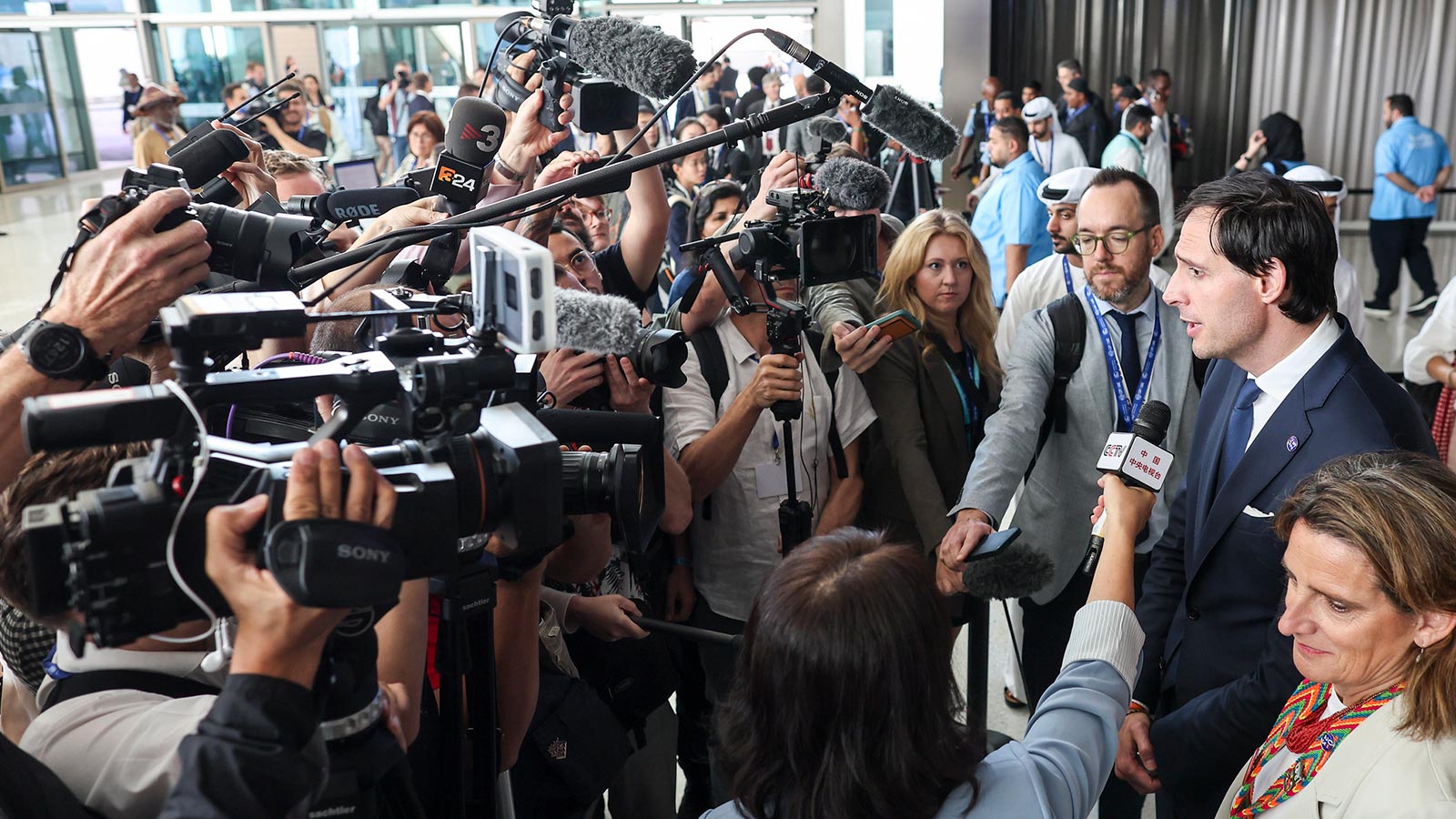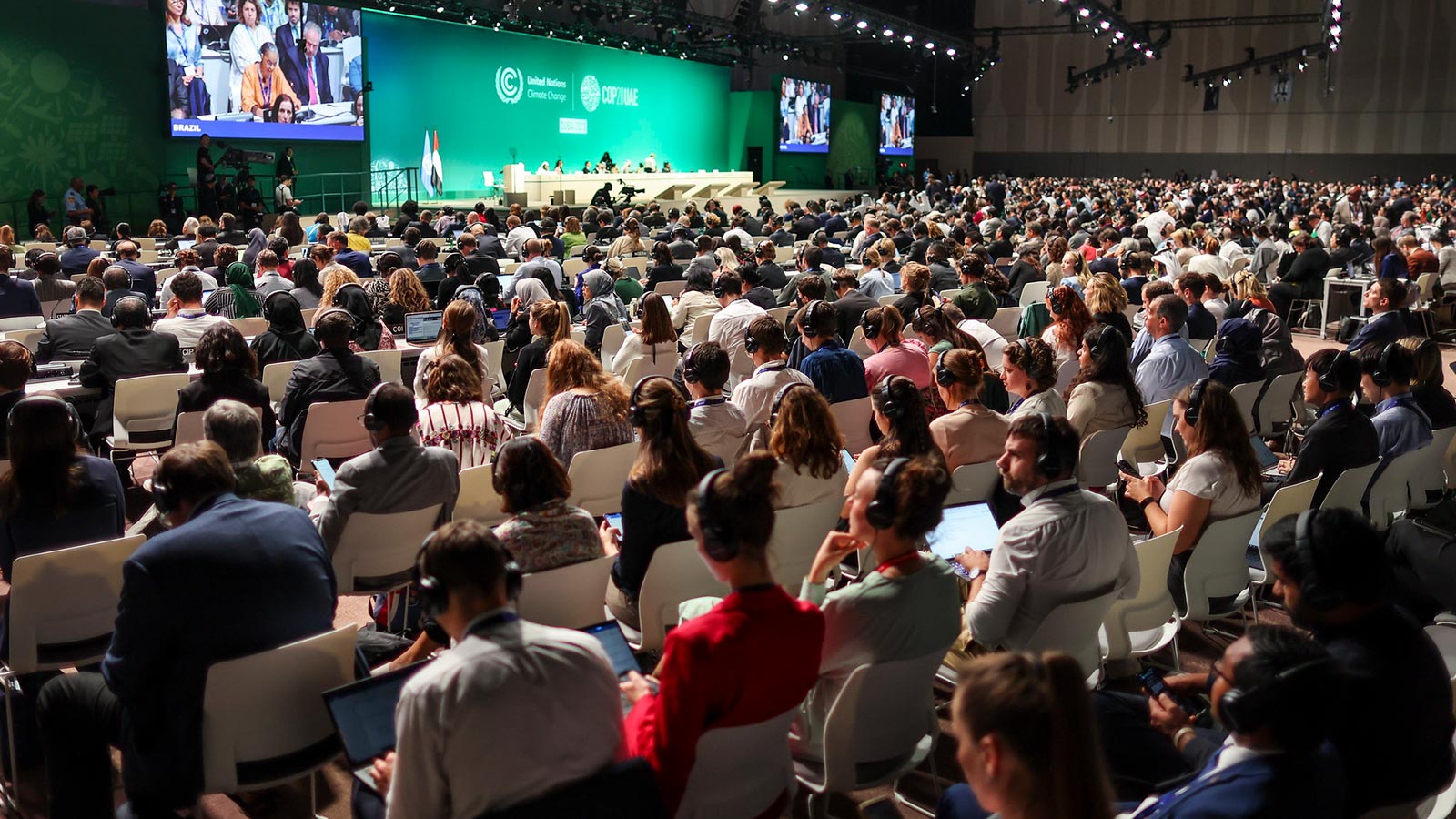She joined a group of Alberta delegates from government, industry, and indigenous communities who seek to build a thriving energy system that works with the industry to reduce emissions, while ensuring Canada’s prosperity.
Alberta’s presence at COP28 was important to share the province’s story on a global stage, says Hadzic, who leads the Alberta Public Sector Transformation practice at Deloitte.
“Alberta is a leader in innovation and is investing in technologies to support emissions reductions,” she says. “Meanwhile, the many global pledges and commitments made by Canada were not done in consultation with the province.”
At COP28, the government of Canada pledged to dramatically reduce methane emissions and to move away from fossil fuels as an energy source. It also unveiled an oil and gas framework that would put a cap on emissions — something no other oil-exporting nation has done, which leaves Canada at a competitive disadvantage.
Amidst the meetings and panels between governments and industry, protestors at COP28 pushed for an immediate stop to all oil and gas extraction and production.
There was no discussion, or a discernible plan presented, however, on how that would work, nor mention of the devastating energy insecurity and shortages that would result if this occurred.

Photo by COP28 / Kiara Worth (CC BY-NC-SA 2.0 DEED)
COP28 showed us we need balanced voices at the table
Canada’s pledges at COP28 reveal an urgent need for more diverse voices in the energy conversation.
Solutions to climate change, like clean energy tech should come from collaborations with the energy sector, who have expertise to bring to the table — while simultaneously protecting quality of life for Canadians.
CPW research shows engaged women support technology and innovation to reduce emissions, and they aren’t willing to pay more personal taxes, experience less economic prosperity or reduce their standard of living to make that happen.
Concerns like these were top of mind for the Alberta delegation at COP28 too, says Hadzic. The journey to emissions reduction should align with economic prosperity and highlight the progressive impact Canadian energy companies are already making, she says.
Canada already has so much to be proud of, such as investment in innovative clean energy technologies like carbon capture and storage (CCS), she says. Going to Dubai was a chance to highlight the Canadian energy sector’s innovations and how they can be scaled to provide energy solutions for the rest of the world.
Hadzic says the Alberta delegation to COP28 shared significant progress that wouldn’t have been mentioned otherwise. “Alberta has already reduced 45% of emissions in the oil and gas sector, which is three years ahead of schedule,” she says, as an example.
“Alberta is forging global partnerships and collaboration opportunities, with the aspiration that the broader support of Canada will follow.”

Photo by COP28 / Mahmoud Khaled (CC BY-NC-SA 2.0 DEED)
Balanced conversations drive a viable energy transformation
Over the next year we will continue to unpack Canada’s COP28 pledges and commitments, with a focus on facilitating balanced conversations about our energy future with engaged women across the country.
We’ve already started talking with engaged women and energy leaders about COP28 takeaways, and the consensus is clear: balanced conversations are needed because some energy policies could lead to a decline in global standards of living.
“People the world over have improved standards of living due to access to affordable, reliable energy,” says Lisa Mueller, president and CEO of FutEra Power. “Let’s not go so fast that we drive up costs and people have to give up on change and innovation because they can’t live in the world where costs get away on us.”
January McKee, a CPW founder and board member who also attended COP28, agrees, adding that open discussion about the important role that oil and gas plays in energy transformation — while also enabling economic growth and prosperity — is crucial.

Photo by COP28 / Mahmoud Khaled (CC BY-NC-SA 2.0 DEED)
We are here to bring more voices to the energy transformation table
If you know CPW, you know we represent Canadian women who believe sound energy policies are vital for the continuing economic prosperity of our country. We’re driven by the unshakable belief that a better world is possible, and we can make it happen, together.
If we haven’t met yet, we hope you will join us to share your perspectives.
Our mission is to create trusted spaces for women to participate in national energy transformation conversations and to represent their points of view to influence public perception, policymakers, and government. We are a non-partisan, non-profit organization.
Join our community to be notified about upcoming events, get first access to important resources, participate in our surveys, and learn about other ways to take action.
